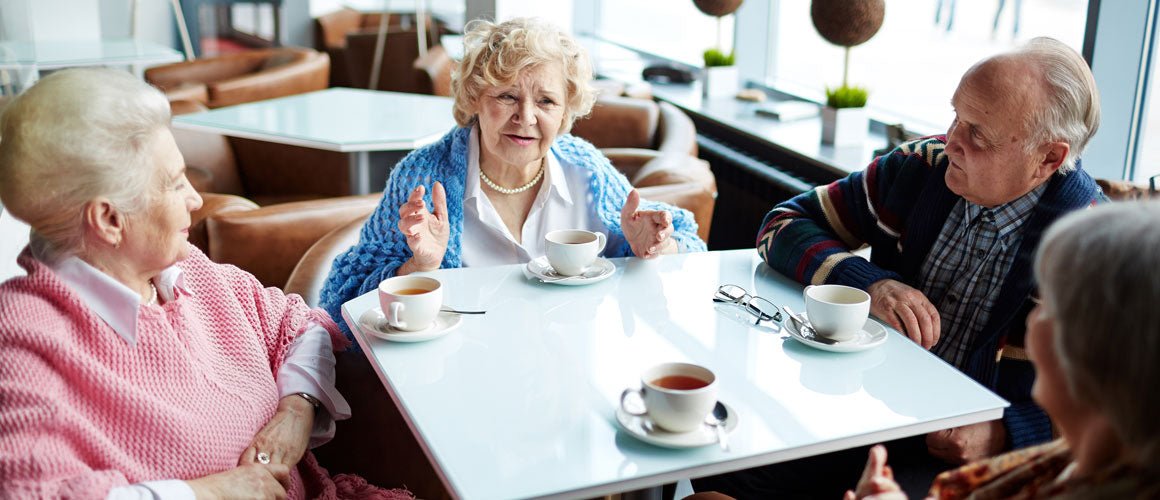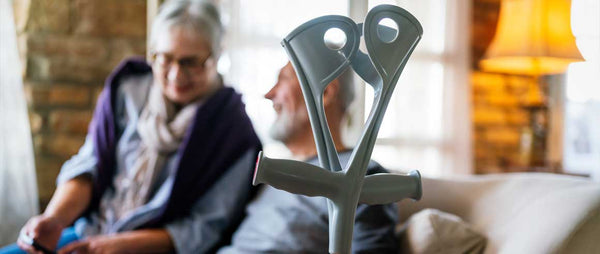Many people have preconceptions about elderly alarm devices and fall pendants and it might not be something that you have thought about for yourself in the past.
But monitored devices and alarms are not just for those who consider themselves to be more frail or less mobile than they used to be.
These kinds of systems can help maintain independence, minimise the risk of accidents happening in the first place and keep people living full and active lives, in the environments that they love and feel most comfortable in, for longer than might otherwise be possible.
In this article, we look at a range of different types of alarms, pendants and emergency buttons for older adults, outline the various benefits and who they might be most suited to.
Jump to:
- Fall pendants
- Elderly fall bracelets
- Panic alarms for the home and garden
- GPS help buttons for taking anywhere
- Personal alarms with no landline needed
- Dementia trackers
- Home sensor alarms
Fall pendants
Experiencing a fall at home might not sound too serious, but falls can cause some quite significant injuries, especially if the fall occurs in someone’s later years.
A fall pendant is there so that someone who may be at risk of a fall has a way of raising the alarm if the worst does happen. The pendant is worn at all times, meaning that the wearer always has a way to alert someone that they have fallen, had an incident in the home or any other kind of emergency.
Fall alarms with fall detection
Some falls alarms require the wearer to press the button to alert the monitoring team that they’ve had a fall.
However, other personal fall alarms include technology that actually detects when falls occur. This means that if the person who’s had a fall isn’t able to raise the alarm themselves, perhaps due to being injured, the falling alarm itself automatically informs the Emergency Resolution Team, so that assistance can be arranged as quickly as possible.
Elderly fall bracelets
Some people would rather not wear an alarm as a pendant, so are looking for another kind of wearable solution. It might be that they think they’ll forget to wear the pendant alarm on a daily basis, or they might just not think it fits with their lifestyle or what they want to wear.
Alternatives to this include elderly fall bracelets that can come in the form of a personal alarm watch for the elderly that is worn on the wrist and may be a more natural lifestyle fit for them.
Some personal alarms for the elderly are available in a form that can easily be worn as either a watch or pendant at any time, so you can choose between these options and change things up as often as you like.
Some alarms can also be wearable in other ways, like a clip with the ability to be worn as a keyring, which means there is an option that could suit everyone’s personal preference.

Panic alarms for the home and garden
If you’re someone who spends lots of time at home, perhaps a keen gardener as well as someone who likes to be in familiar surroundings, emergency alarms for the elderly that work anywhere on your property are important.
You need a panic alarm device that you can rely on as much in the garden as you can in the home itself, so that you and your family have peace of mind that someone can always be alerted if anything unexpected happens.
GPS help buttons for taking anywhere
A common misconception is that personal alarms for older people are only for use in the home and can’t be taken out with you when you leave the house or venture further than your own property.
But now there’s personal alarms with GPS tracking for seniors, meaning that they can essentially be taken anywhere and can send your location to the emergency resolution team if something happens when you are out.

Personal alarms with no landline needed
Many personal alarms for the elderly are designed to work with your home landline, but there are also personal emergency buttons that don’t need a landline in order to alert the resolution team if there is an incident.
They use a SIM card, just like the one in a mobile phone, so that a landline is not required. This SIM card technology is also used in GPS alarms so that when you are out and about anywhere, help can be contacted if needed.
Dementia trackers
It might be the case that an alarm is not actually required, just the capability to track someone, perhaps if they have dementia or are prone to forgetfulness and may wander off.
With a dementia tracker that has built-in GPS, it can easily be tracked both indoors or outdoors (provided that there is mobile coverage), and the device can be attached to a keyring or even clothing.
With this kind of device, it’s also possible to configure ‘safe’ zones, so that there is an alert sent if the device travels outside a specified area or pre-set location. This ‘early warning’ system could help you keep a loved one safe.
Home sensor alarms
One reason that people sometimes choose to look into personal alarm systems is not because they have already had a fall or another emergency at home - but because they want to take preventative steps to minimise the risk of anything like that happening in the future.
It’s now possible to set up home sensors for the elderly that can ‘learn’ about ‘normal’ routines and behaviour in the home through artificial intelligence (AI).
These sensors raise an alert if anything unusual happens, such as the temperature changing radically, the kettle not being used at usual times or the fridge not being opened all day, for example.
Shifts in behaviour might not indicate an emergency, but they may be signs that things have changed at home and some assistance could be required.
All of this is without the use of any cameras or microphones, which can help ensure privacy and independence is maintained.

Monitored personal alarms systems for older people have many benefits and the technology available now means that they are no longer the limited solutions you might have heard of in the past.
Whether to help lower the risk of anything happening or in response to an incident that has already occurred, it’s never been easier to find the best alarm, monitor and system for you.



